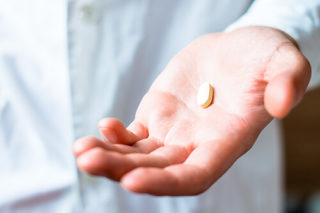After alcohol and marijuana, prescription drugs are the third most abused substances in the world. As more and more Americans die from drug overdoses, the need to address prescription drug addiction early on has become increasingly significant. Opioids have made the biggest impact, as OxyContin and hydrocodone have been linked to more overdose deaths than any other prescription drug.
Because of the number of people with a prescription drug use disorder, addiction recovery treatment centers have seen an increase in people seeking help for prescription drug use disorders.
Your path to recovery is waiting
and we’re here to help.
Our admissions specialist are available 24/7 to listen to your story
and get you started with next steps.
When you call our helpline, you will be connected with a caring admissions navigator to discuss your options for treatment.
Most Commonly Abused Prescription Drugs
Painkiller overdoses have seen a massive increase in the last couple of decades. With accessibility at an all-time high, it is easy for people to obtain these prescription drugs. It is estimated that every month 6.1 million Americans misuse prescription drugs. The reality is that most people begin using prescription medications legitimately for medical conditions including mental health and chronic pain.
The most commonly abused prescription drugs are:
- Opioids
- Stimulants
- Central Nervous System (CNS) Depressants
The popularity of these medications gives addicts the opportunity to easily purchase them, legally or not. Each of these prescription drugs are used to treat a variety of physical and mental issues.
Opioids
Opioids are prescribed to treat pain such as temporary (followng a surgery) or chronic, which is recurring pain. These drugs are the most powerful of all painkillers and have a high likelihood for addiction. Since opioids tend to be expensive, a person who is addicted may transition to using heroin, because it is cheaper and more available.
The most commonly abused opioids include:
- Fentanyl
- Hydrocodone
- Hydromorphone
- Methadone
- Meperidine
- Oxycodone
Opioids can be injected, snorted, or swallowed and can come in a variety of forms such as pill, powder, or liquid.
Stimulants
Stimulants are typically prescribed to treat things like focusing issues or to assist in weight control. They make the user feel increased energy, stimulation, and a feeling of euphoria. In many cases, a prescription stimulant is a gateway to illicit stimulants such as crystal meth, crack, or cocaine.
The most commonly abused stimulants include:
- Amphetamine
- Dextroamphetamine
- Methylphenidate
Thes are typically Adderall, Dexedrine, and Ritalin and come in pill form. Someone who is misuing one of these medications may start snorting the drug for a more intense high.
Central Nervous System (CNS) Depressants
From anxiety to depression to sleep disorders, CNS depressants are abused at alarming rates. These medications slow down the brain and produce a euphoric or even numb feeling.
The most commonly abused CNS depressants include:
- Barbiturates
- Benzodiazepines
- Sleeping Medications
Many patients are prescribed these medications to treat mental health issues and then misuse them.
Signs of Prescription Drug Addiction
Recognizing the signs and symptoms of prescription drug misuse is important for an individual to get help. Signs of abuse vary depending upon the type of drug misused as well as the individual who is misusing them. When a person develops a dependence on prescription medications, their tolerance builds and they need to take more and more of the substance to feel the same effects.


